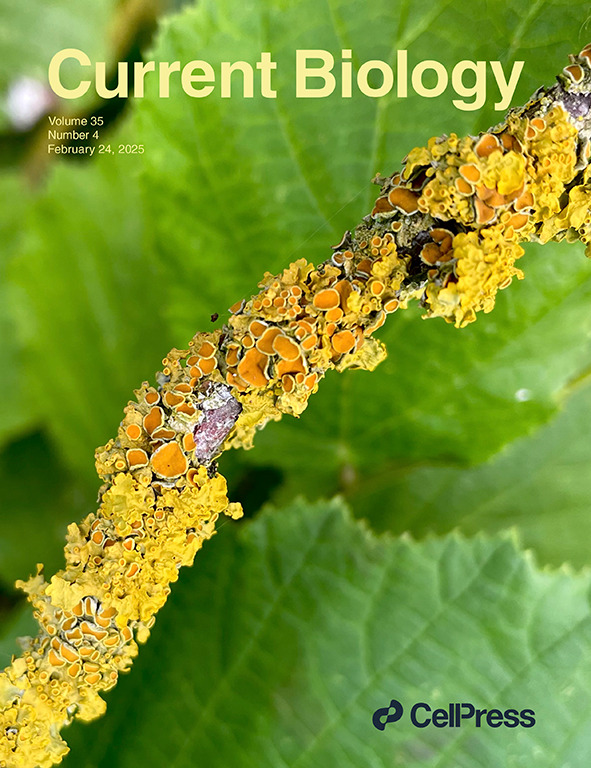Publications
See also my Google Scholar and Research Gate pages

Preprints
- Tagirdzhanova G., Bucknell A., Cameron E. S., Finn R. D., Blaxter M., McDonald M. C., Talbot N. J. 2025. Tangerine: a Starship-like element in the genomes of Xanthoria lichen-forming fungi. bioRxiv. Link to preprint
Papers
Tagirdzhanova G., Raistrick J., Talbot N. J. 2026.Chromosome-level genome assembly of the photobiont microalga Trebouxia sp. ‘A48’ from the lichen Xanthoria parietina. New Phytologist 249(2): 1036-1052. Link to article. Highlighted by Plant Science Research Weekly in Plantae
Tagirdzhanova G., Scharnagl K., Sahu N., … & Talbot N. J. 2025. Complexity of the lichen symbiosis revealed by metagenome and transcriptome analysis of Xanthoria parietina. Current Biology 35(4): 799–817. Link to article. This paper was featured on the journal cover and covered in the ‘In Other Journals’ section in Science
Allen C.C.G., Díaz-Escandón D., DeLong-Duhon S., Tagirdzhanova G., … & Spribille T. 2025. Massive gene loss in the fungus Sporothrix epigloea accompanied a shift to life in a glucuronoxylomannan-based gel matrix. Genome Biology and Evolution 17(2): evaf015. Link to article
Tagirdzhanova G., Saary P., Cameron E.S., … & Spribille T. 2024. Microbial occurrence and symbiont detection in a global sample of lichen metagenomes. PLOS Biology 22(11): e3002862. Link to article
Tagirdzhanova G., Scharnagl K., Yan X., Talbot N. J. 2023. Genomic analysis of Coccomyxa viridis, a common low-abundance alga associated with lichen symbioses. Scientific Reports 13: 21285. Link to article
Scharnagl K., Tagirdzhanova G., Talbot N. J. 2023. The coming golden age for lichen biology. Current Biology 33(11): PR512-R518. Link to article
Díaz-Escandón D., Tagirdzhanova G., Vanderpool D., … & Spribille T. 2022. Genome-level analyses resolve an ancient lineage of symbiotic ascomycetes. Current Biology 32: 1–10. Link to article
Resl P., Bujold A. R., Tagirdzhanova G., … Spribille T. 2022. Large differences in carbohydrate degradation and transport potential in the genomes of lichen fungal symbionts. Nature Communications 13: 2634. Link to article
Spribille T., Resl P., Stanton D., Tagirdzhanova G. 2022. Evolutionary biology of lichen symbioses. New Phytologist 234(5): 1566–1582. Link to article
Tagirdzhanova G., McCutcheon J. P., Spribille T. 2021. Lichen fungi do not depend on the alga for ATP production: a comment on Pogoda et al. (2018). Molecular Ecology 30(17): 4155-4159. Link to article
Tagirdzhanova G., Saary P., Tingley J., Diaz Escandon D., Abbott W., Finn R., Spribille T. Predicted input of uncultured fungal symbionts to a lichen symbiosis from metagenome-assembled genomes. 2021. Genome Biology and Evolution Link to article
Spribille T., Tagirdzhanova G., Goyette S., Tuovinen V., Case R., Zandberg W. 2020. 3D biofilms: in search of the polysaccharides holding together lichen symbioses. FEMS Microbiology Letters 367(5): p.fnaa023. Download PDF
Tagirdzhanova G., Stepanchikova I., Himelbrant D., Vyatkina M., Dyomina A., Dirksen V., Scheidegger C. 2019. Distribution and assessment of the conservation status of Erioderma pedicellatum in Asia. Lichenologist 51(6): 575-585. Link to article
Himelbrant D. E., Stepanchikova I. S., Motiejūnaitė J., Kuznetsova E. S., Tagirdzhanova G., Frolov I. V. 2019. New records of lichens and allied fungi from the Leningrad Region, Russia. X. Folia Cryptogamica Estonica 56: 23-29.
Motiejunaite J., Chesnokov S. V., Czarnota P., Gagarina L. V., Frolov I., Himelbrant D., Konoreva L., Kubiak D., Kukwa M., Moisejevs R., Suija A., Tagirdzhanova G., Thell A., Stepanchikova, I. 2016. Ninety-One Species of Lichens and Allied Fungi New to Latvia with a List of Additional Records from Kurzeme. Herzogia 29(1): 143–163. Link to article
Himelbrant D. E., Stepanchikova I. S., Tagirdzhanova G. M. 2016. The lichens and allied fungi of the Oranienbaumsky Prospective Protected Area (St. Petersburg). Novitates systematicae plantarum non vascularum 50: 210–230.
Himelbrant D. E., Stepanchikova I. S., Motiejūnaitė J., Vondrak J., Tagirdzhanova G. M., Gagarina L. V., Kuznetsova E. S. 2015. New records of lichens and allied fungi from the Leningrad Region, Russia. VI. Folia Cryptogamica Estonica 52: 21–28.
Stepanchikova I. S., Gagarina L. V., Tagirdzhanova G. M., Himelbrant D. E. 2015. The lichens of juniper communities of Shuryagsky Cape (Leningrad Region). Vestnik Tverskogo Gosudarstvennogo Universiteta, Biology and Ecology series 34: 121–126. (in Russian, English summary).
Stepanchikova I. S., Himelbrant D. E., Dyomina A. V., Tagirdzhanova G. M. 2015. The lichens and allied fungi of the Zapadny Kotlin protected area and its vicinities (Saint Petersburg). Novitates systematicae plantarum non vascularum 49: 265–281.
Tagirdzhanova G. M., Kataeva O. A., Stepanchikova I. S. 2014. New lichen records from the Novgorod Region, Russia. Folia Cryptogamica Estonica 51: 103–107.Download PDF
Himelbrant D. E., Motiejūnaitė J., Stepanchikova I. S., Tagirdzhanova G. M. 2014. New records of lichens and allied fungi from the Leningrad Region, Russia. V. Folia Cryptogamica Estonica 51: 49–55.
Sorokina I. A., Himelbrant D. E., Stepanchikova I. S., Spirin V. A., Efimov P. G., Kushnevskaya E. V., Kuznetsova E. S., Chirkova G. A., Gagarina L. V., Liksakova N. S., Bol’shanin A. A., Tagirdzhanova G. M. 2013. Forest certification as a tool for detection and conservation of biologically valuable forests and scientific research in the eastern part of Leningrad Region. Vestnik Tverskogo Gosudarstvennogo Universiteta, Biology and Ecology series 32: 246–264. (In Russian, English summary).
Stepanchikova I. S., Tagirdzhanova G. M., Himelbrant D. E. 2013. The lichens and allied fungi of the Smorodinka River valley (Leningrad Region). Novitates systematicae plantarum non vascularum 47: 262–278.
Book chapters
Tagirdzhanova G. Boreal Felt Lichen, an endangered cyanolichen Erioderma pedicellatum. In: DiPaolo D., Villella J. (Eds.). Imperiled: The Encyclopedia of Conservation. In press.
Tagirdzhanova G. M. 2018. Lobaria scrobiculata. In Geltman D. (Ed.). Red Data Book of Leningrad Region: Plants. P. 519-520. (in Russian).
Tagirdzhanova G. M. 2018. Lobaria pulmonaria. In Geltman D. (Ed.). Red Data Book of Leningrad Region: Plants. P. 781-782. (in Russian).
Published conference abstracts
- Tagirdzhanova G., Spribille T. 2019. Genome heterogeneity affecting binning of complex fungal communities. BMC Bioinformatics 20 (Suppl 17): P7.
